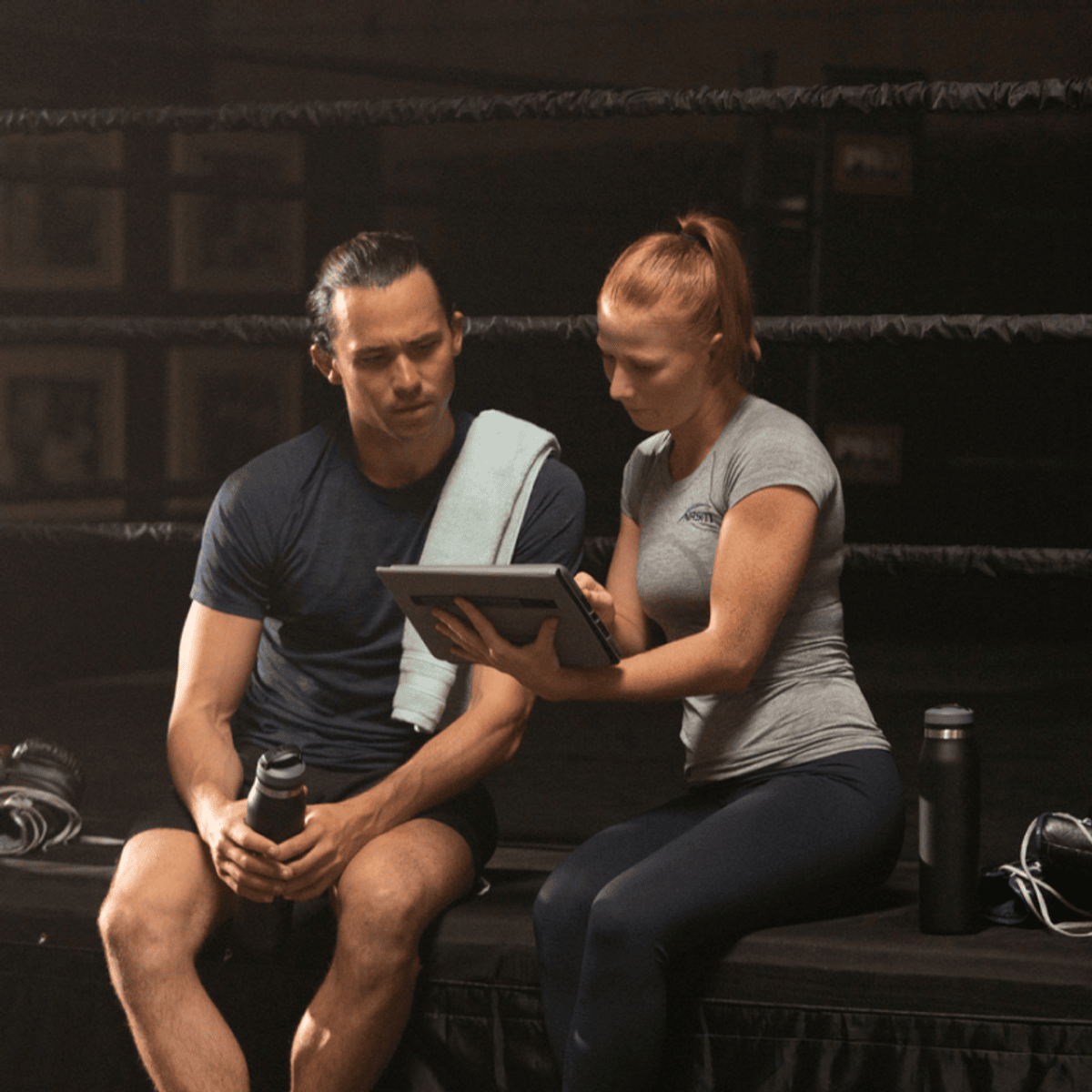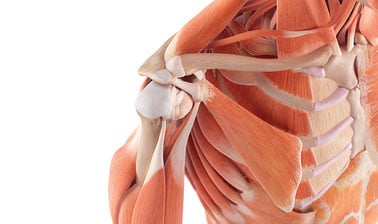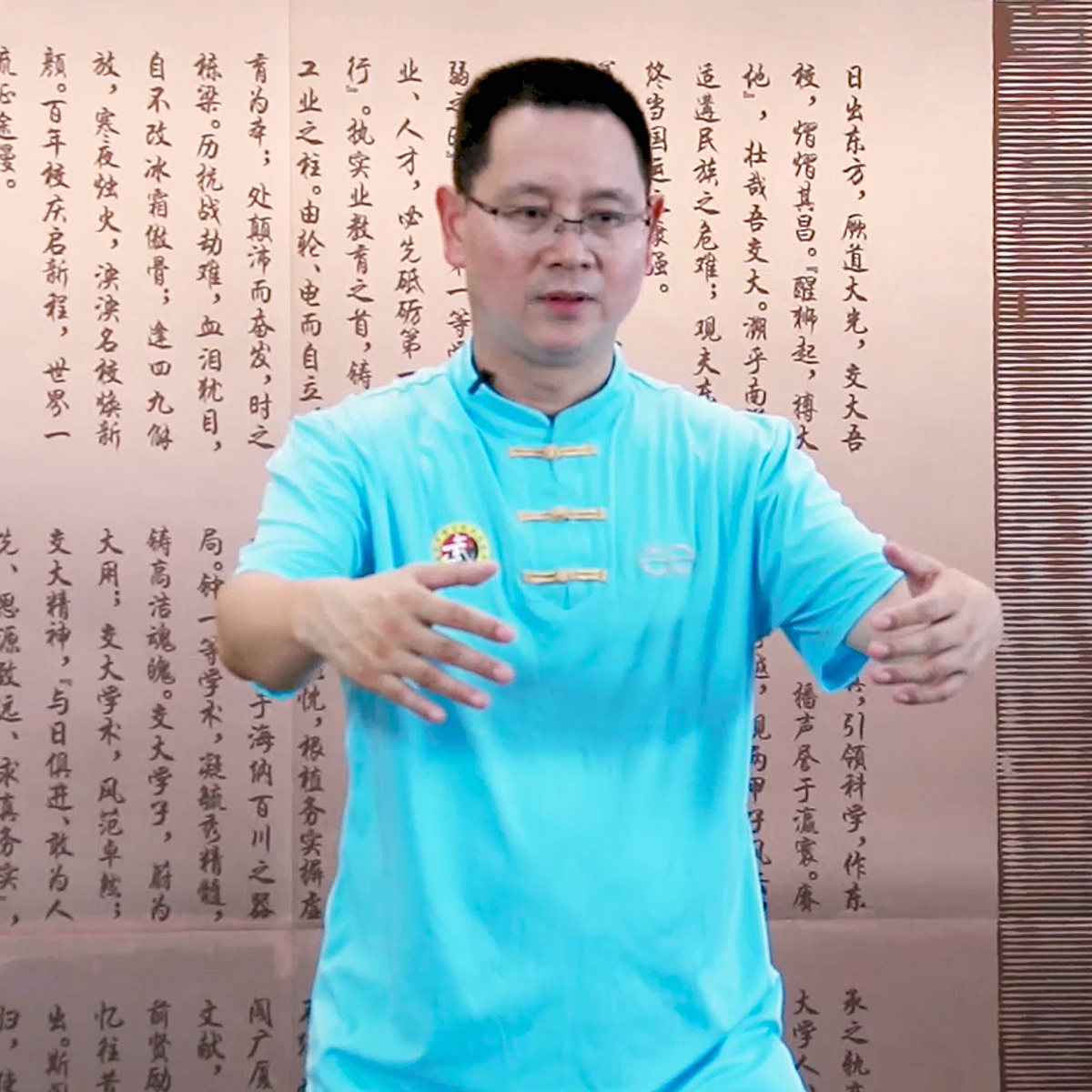Fitness Instructor
Fitness Instructor: A Career Guide
A Fitness Instructor is a professional dedicated to guiding individuals and groups through exercise activities and programs. They play a vital role in helping people achieve their health and fitness goals, promoting physical well-being through structured and safe exercise routines. This career path often appeals to those passionate about health, movement, and motivating others.
Working as a fitness instructor can be deeply rewarding. You have the opportunity to directly impact people's lives, witnessing their progress and celebrating their achievements. The field offers diverse settings, from bustling gyms and community centers to specialized studios and even online platforms, allowing for flexibility and specialization.
Introduction to Fitness Instruction
What is a Fitness Instructor?
At its core, a fitness instructor leads, instructs, and motivates individuals or groups in exercise activities. This can include cardiovascular exercises, strength training, stretching, and group fitness classes like aerobics, spinning, or yoga. Their primary goal is to ensure participants exercise effectively and safely.
The scope of their work involves understanding fundamental principles of exercise science, adapting routines for different fitness levels, and creating an encouraging environment. They are educators and motivators, empowering clients to take ownership of their health journey. It's a hands-on role requiring energy, empathy, and clear communication.
Fitness instructors often work varied hours, including evenings and weekends, to accommodate clients' schedules. The role demands physical stamina and a genuine enthusiasm for fitness that can inspire others. It's a dynamic profession focused on active engagement and positive reinforcement.
Key Responsibilities
A major responsibility is designing and implementing exercise programs tailored to client needs or group objectives. This involves assessing fitness levels, understanding goals, and selecting appropriate exercises and modalities. They demonstrate correct techniques and monitor participants to prevent injury.
Instructors are also responsible for maintaining a safe and clean exercise environment. This includes ensuring equipment is functioning correctly and guiding participants on proper equipment usage. They must be prepared to provide basic first aid or respond to emergencies if they arise.
Motivating clients is crucial. Fitness instructors use encouragement, positive feedback, and goal-setting strategies to keep individuals engaged and committed to their fitness plans. Building rapport and understanding client challenges are key aspects of fostering long-term adherence to exercise.
Related Roles in Fitness and Health
While related, a fitness instructor differs from a Personal Trainer
Fitness instructors should also not be confused with physiotherapists or physical therapists. Physiotherapists are licensed healthcare professionals who diagnose and treat injuries, disabilities, and health conditions through physical methods like exercise, manipulation, and massage. Their focus is rehabilitation and recovery, requiring extensive medical training.
Other related roles include Wellness Coaches
Health EducatorsCore Skills and Competencies
Essential Technical Knowledge
A solid understanding of human anatomy and physiology is fundamental. Instructors need to know how muscles, bones, and joints work together during exercise to design safe and effective programs. This knowledge helps in selecting appropriate exercises and preventing injuries.
Exercise physiology, the study of how the body responds and adapts to physical activity, is equally important. Understanding energy systems, cardiovascular responses, and principles of training adaptation allows instructors to tailor workouts for specific outcomes like endurance, strength, or weight loss.
Knowledge of biomechanics helps instructors analyze movements, correct form, and optimize exercise technique. Understanding levers, force application, and movement patterns ensures clients perform exercises efficiently and safely, maximizing results while minimizing risk.
These foundational courses provide essential knowledge in fitness programming and client assessment.
Important Soft Skills
Effective communication is paramount. Fitness instructors must clearly explain exercises, provide constructive feedback, and actively listen to clients' concerns and goals. Building rapport through clear and empathetic communication fosters trust and motivation.
Motivational skills are crucial for keeping clients engaged and progressing. This involves understanding individual personalities, celebrating small victories, setting realistic expectations, and creating a positive, supportive atmosphere. Enthusiasm and passion for fitness are often contagious.
Patience and adaptability are also key. Clients progress at different rates and may face setbacks. Instructors need to be patient, adjust programs as needed, and find creative solutions to overcome challenges, ensuring clients feel supported throughout their journey.
Foundational Certifications
Most employers require fitness instructors to hold current CPR (Cardiopulmonary Resuscitation) and AED (Automated External Defibrillator) certifications. These credentials demonstrate the ability to respond effectively in emergency situations, ensuring client safety.
Industry-specific certifications are often necessary and highly recommended. Organizations like the American Council on Exercise (ACE) and the National Academy of Sports Medicine (NASM) offer widely recognized certifications for group fitness instructors and personal trainers. These certifications validate knowledge and competence in exercise science, program design, and safety protocols. You can learn more about certification requirements directly from these organizations like ACE and NASM.
Depending on the specialization (e.g., yoga, Pilates, Zumba), specific certifications in those disciplines may be required or preferred. Continuous learning through workshops and advanced certifications is common and helps instructors stay current with industry best practices and expand their skillset.
These courses cover first aid and CPR, essential for any fitness professional.
Formal Education Pathways
University Degrees
While not always mandatory, a bachelor's degree in a related field like Kinesiology, Exercise Science, or Sports Science provides a strong theoretical foundation. These programs delve deeply into human movement, physiology, biomechanics, and nutrition.
University education often includes practical lab components and internship opportunities, offering valuable hands-on experience. Graduates typically possess a comprehensive understanding of scientific principles underpinning fitness and health, preparing them for advanced roles or specialization.
A degree can enhance credibility and open doors to roles in corporate wellness, clinical settings, or management within the fitness industry. It provides a broader perspective on health and wellness beyond basic instruction.
Vocational Training Options
Vocational schools and community colleges offer certificate or diploma programs specifically focused on fitness instruction or personal training. These programs are typically shorter and more career-oriented than university degrees.
They emphasize practical skills, hands-on training, and preparation for industry certification exams. This pathway can be a quicker route into the workforce for those seeking to become fitness instructors without committing to a four-year degree.
These programs often have strong connections with local fitness facilities, potentially aiding in job placement after completion. They provide the essential knowledge and skills required for entry-level positions in gyms, studios, and community centers.
Lifelong Learning and Advanced Training
The fitness field is constantly evolving, making continuous learning essential. Workshops, seminars, and conferences offer opportunities to learn new techniques, stay updated on research, and network with peers.
Advanced certifications allow instructors to specialize in areas like corrective exercise, performance enhancement, specific populations (e.g., seniors, youth), or particular modalities (e.g., kettlebells, suspension training). Specialization can increase marketability and earning potential.
Many organizations require certified professionals to complete continuing education units (CEUs) to maintain their credentials. This ensures instructors remain current and competent throughout their careers, adapting to new trends and scientific findings in the Health & Fitness field.
These books offer deep dives into running mechanics and training principles, useful for continued learning.
Leveraging Online Learning for Fitness Careers
Finding Relevant Online Courses
Online platforms offer a vast array of courses relevant to fitness instruction. You can find courses covering foundational topics like anatomy and exercise physiology, as well as specialized areas such as nutrition, specific training methods (like HIIT or yoga), and business skills for fitness professionals.
OpenCourser is an excellent resource for discovering these options, allowing you to search and compare thousands of courses from various providers. Look for courses from reputable institutions or certified by recognized fitness organizations to ensure quality and credibility.
Online learning provides flexibility, allowing you to study at your own pace and schedule, which is ideal for those balancing work, family, or other commitments. Whether supplementing formal education or building foundational knowledge from scratch, online courses are accessible tools for career development.
Explore courses in nutrition or specialized training methods to broaden your expertise.
Integrating Self-Study with Practice
While online courses provide theoretical knowledge, practical application is essential in fitness instruction. Seek opportunities to apply what you learn, perhaps by practicing techniques on friends or family, volunteering at a local community center, or shadowing experienced instructors.
Combine theoretical learning with hands-on experience. For example, after taking an online course on exercise programming, try designing sample workout plans for different hypothetical clients. If learning about group fitness, practice cueing and leading short sequences.
Self-discipline is key when learning online. Set a regular study schedule, actively participate in course forums or discussions, and consistently bridge the gap between theory and practice. The OpenCourser Learner's Guide offers tips on staying motivated and structuring self-directed learning.
Building a Practical Portfolio
Even without formal employment, you can build a portfolio demonstrating your skills. Document sample workout plans you've designed or record videos of yourself demonstrating exercises or leading short class segments. This showcases your abilities to potential employers.
Consider undertaking small projects, like developing a fitness challenge for a group of friends or creating informational content (e.g., blog posts, short videos) about safe exercise practices. These projects demonstrate initiative and practical application of your knowledge.
A well-curated portfolio, potentially including testimonials from people you've helped informally, can supplement certifications and online course completions, providing tangible evidence of your capabilities during job searches or when seeking clients.
Career Path and Progression
Starting Your Journey
Entry-level positions often involve roles like gym floor staff, where duties might include assisting members, maintaining equipment, and potentially leading introductory sessions. Another common starting point is teaching group fitness classes like aerobics, spinning, or boot camps.
These initial roles provide valuable experience in understanding gym operations, interacting with diverse clientele, and honing instructional skills. They offer a chance to observe seasoned professionals and learn the practical aspects of the job in a real-world setting.
Building a client base or class following takes time and effort. Focus on delivering high-quality instruction, building relationships, and demonstrating reliability and professionalism to establish your reputation.
Specializing and Advancing
With experience, instructors often choose to specialize. This might involve focusing on specific populations (e.g., seniors, youth, pre/postnatal clients), particular training modalities (e.g., Pilates, kettlebells, strength and conditioning), or health conditions (e.g., cardiac rehabilitation, corrective exercise).
Mid-career roles can include positions like senior trainer, lead instructor, or fitness coordinator. These often involve mentoring junior staff, developing new programs, or managing specific aspects of a fitness facility's offerings. Specialization can lead to higher demand and potentially higher pay rates.
Continuous education and advanced certifications are crucial for specialization. Pursuing deeper knowledge in a chosen niche allows instructors to offer more targeted and effective services, distinguishing themselves in a competitive market.
These courses offer specialized knowledge for working with seniors or advanced stretching techniques.
Leadership and Beyond
Experienced fitness professionals may move into leadership or management roles. This could involve becoming a fitness director, gym manager, or studio owner, overseeing operations, staff, budgets, and strategic planning.
Some instructors transition into educator roles, training aspiring fitness professionals by teaching certification courses or workshops. Others might leverage their expertise to develop corporate wellness programs or consult for fitness businesses.
Entrepreneurial paths are also common, with many instructors establishing their own personal training businesses, specialized studios, or online coaching platforms. These roles require business acumen alongside fitness expertise but offer autonomy and potentially greater financial rewards.
Consider these books for insights into peak performance and the nature of work and leisure.
Health, Safety, and Ethics
Managing Risks in Exercise Design
A primary responsibility of a fitness instructor is to minimize the risk of injury. This involves conducting pre-exercise screenings to identify potential health issues or limitations, selecting appropriate exercises based on individual capabilities, and teaching correct form.
Progressing clients gradually is essential. Instructors must carefully monitor intensity, duration, and complexity, ensuring clients adapt safely without being pushed beyond their limits too quickly. Proper warm-ups and cool-downs are integral parts of risk mitigation.
Understanding contraindications for certain exercises based on health conditions or previous injuries is critical. Instructors must know when to modify exercises or avoid them altogether to ensure client safety remains the top priority.
These courses cover injury prevention and first aid, vital for safe instruction.
Professional Ethics and Client Care
Fitness instructors have an ethical duty to act in their clients' best interests. This includes maintaining confidentiality, respecting boundaries, and providing honest, evidence-based advice within their scope of practice. Promoting unrealistic goals or unproven methods is unethical.
Creating an inclusive and welcoming environment for all clients, regardless of age, ability, background, or fitness level, is fundamental. Instructors should foster a supportive atmosphere free from judgment or discrimination.
Maintaining professional competence through ongoing education and adhering to a code of ethics established by certifying bodies are hallmarks of a responsible fitness professional. Knowing when to refer clients to other healthcare providers (like doctors or dietitians) for issues beyond their expertise is also crucial.
Understanding Legal and Insurance Aspects
Fitness instructors face potential legal liabilities related to client injuries or accidents. Understanding legal responsibilities, such as obtaining informed consent and documenting client progress and incidents, is important.
Professional liability insurance is essential for all fitness instructors, whether working independently or for an employer. This insurance provides financial protection in case of lawsuits arising from alleged negligence or injury during training sessions.
Adhering to facility policies, safety guidelines, and relevant laws (e.g., related to data privacy or business licenses if self-employed) is necessary to operate professionally and mitigate legal risks. Staying informed about legal requirements in your specific location is advisable.
Fitness Instructor Specializations
Common Areas of Focus
Many instructors specialize in working with specific populations. Senior fitness focuses on maintaining mobility, strength, and balance in older adults. Youth fitness involves designing age-appropriate activities that promote healthy development and lifelong activity habits.
Athletic conditioning targets improving performance for athletes in specific sports, focusing on strength, power, speed, and agility. Corrective exercise specialists help clients address movement dysfunctions, imbalances, and chronic pain through targeted exercise strategies.
Group fitness specializations are also popular, including Yoga, Pilates, Zumba, Spinning, and various forms of dance fitness. These require specific training and certification in the chosen modality.
These courses offer training in popular specializations like Zumba, Kids Yoga, and Boxing Fitness.
Adapting to Industry Trends
Virtual training and online coaching have surged in popularity, offering instructors opportunities to reach clients remotely through live-streamed classes or personalized online programs. This requires adapting communication styles and leveraging technology effectively.
Corporate wellness programs are another growing area, with companies investing in employee health to boost productivity and reduce healthcare costs. Instructors may design and deliver on-site fitness classes, workshops, or health challenges for businesses.
Mind-body integration, focusing on practices like yoga, Tai Chi, and mindfulness alongside physical exercise, reflects a broader trend towards holistic wellness. Instructors incorporating these elements cater to growing client interest in stress reduction and mental well-being.
Advanced Certifications for Niches
To specialize effectively, pursuing advanced certifications is often necessary. Certifications in areas like Strength and Conditioning (CSCS), Corrective Exercise (CES), or specific modalities (e.g., Certified Pilates Instructor) demonstrate expertise and enhance credibility.
These certifications typically require a foundational certification, specific coursework, practical experience, and passing a rigorous exam. They signify a deeper level of knowledge and skill within a particular area of fitness.
Holding advanced certifications can lead to higher earning potential, access to specialized client populations, and greater career opportunities. They represent a commitment to professional development and mastery within the field.
This course helps trainers develop advanced stretching techniques, a valuable niche skill.
The Fitness Industry Landscape
Technology's Role in Fitness Services
Wearable technology, like fitness trackers and smartwatches, provides instructors and clients with valuable data on activity levels, heart rate, sleep patterns, and more. This data can inform program design and track progress more effectively.
Fitness apps and online platforms have expanded access to training programs, workout libraries, and virtual coaching. Instructors leverage these tools to deliver services remotely, manage clients, and provide supplementary resources.
Technology also enhances the in-person experience, from sophisticated assessment tools (like body composition analyzers) to immersive virtual reality fitness games. Staying abreast of relevant technological advancements is becoming increasingly important for fitness professionals.
How Demographics Shape Demand
An aging population in many countries increases demand for fitness programs tailored to seniors, focusing on functional fitness, fall prevention, and managing chronic conditions. This creates opportunities for instructors specializing in active aging.
Growing awareness of childhood obesity drives interest in youth fitness programs in schools, community centers, and specialized studios. Instructors skilled in making fitness fun and engaging for children are in demand.
Busy professionals seek convenient and efficient fitness solutions, fueling demand for short, high-intensity workouts, online training, and corporate wellness programs. Understanding the needs and constraints of different demographic groups helps instructors tailor their services effectively.
Job Market Outlook and Variations
The employment outlook for fitness trainers and instructors is generally positive. According to the U.S. Bureau of Labor Statistics, employment in this field is projected to grow much faster than the average for all occupations, driven by increasing awareness of health benefits associated with exercise and rising interest in fitness among various age groups.
However, job opportunities and earning potential can vary significantly based on location, qualifications, experience, specialization, and employment setting (e.g., large gym chain, boutique studio, freelance). Competition can be high, especially for desirable positions or affluent clientele.
Building a strong reputation, continuously developing skills, and potentially specializing in high-demand niches can improve job prospects and income potential in this dynamic field. Networking and marketing skills are also valuable, particularly for independent instructors.
Frequently Asked Questions
Do I Need Prior Athletic Experience?
While a personal background in sports or athletics can be beneficial, it's not strictly required to become a successful fitness instructor. What matters most is a genuine passion for fitness, a solid understanding of exercise science, and the ability to motivate and instruct others effectively.
Empathy and the ability to relate to clients who may be starting their fitness journey from a non-athletic background can be just as valuable. Focus on acquiring the necessary knowledge and certifications, developing strong communication skills, and practicing safe instruction techniques.
Your role is to guide others based on established principles, not necessarily to be a top athlete yourself. Enthusiasm for helping people achieve their goals is more critical than personal athletic prowess.
Is Part-Time Work Possible?
Yes, fitness instruction offers significant flexibility, and part-time work is very common. Many instructors start part-time while working another job or pursuing education. Gyms and studios often need instructors for early morning, evening, and weekend classes, fitting well with part-time schedules.
Working part-time allows individuals to gain experience, build a client base gradually, or simply maintain involvement in the fitness field without committing to a full-time schedule. It can be an excellent option for career changers exploring the field.
However, part-time roles may offer lower overall income and potentially fewer benefits compared to full-time positions. Income consistency can also vary depending on class attendance or client retention.
How Does Pay Differ Across Settings?
Compensation for fitness instructors varies widely. Instructors employed by large commercial gyms might receive an hourly wage or a per-class rate, potentially supplemented by commissions for signing up new clients. Pay rates can differ based on the gym's pricing structure and location.
Instructors working at boutique studios or specialized facilities may command higher rates, especially if they possess advanced certifications or specialize in a high-demand niche. Compensation structures here might include higher per-class rates or profit-sharing arrangements.
Freelance or independent instructors set their own rates but also bear the costs of business operations, insurance, marketing, and finding clients. Their income potential can be higher but often comes with less stability and requires strong business management skills.
What Are Common Misconceptions?
One common misconception is that fitness instructors must have a "perfect" physique. While maintaining a healthy lifestyle is important for credibility, clients value knowledge, effective communication, and motivational skills more than appearance. Instructors come in all shapes and sizes.
Another misconception is that the job only involves leading workouts. In reality, significant time is spent on program design, client assessment, continuing education, administrative tasks, and marketing, especially for independent instructors.
Some believe fitness instruction is purely physical work. While physically demanding, it also requires significant intellectual effort in understanding exercise science, adapting programs, and applying psychological principles to motivate clients effectively.
How Does the Economy Affect Job Stability?
The fitness industry can be somewhat sensitive to economic downturns. During recessions, individuals may cut back on discretionary spending, which can include gym memberships or personal training sessions. This can impact demand for instructors, particularly those in higher-priced segments.
However, growing awareness of the link between health and exercise provides some resilience. Fitness services focused on preventative health, rehabilitation, or specific medical needs may be less affected. Corporate wellness programs might also remain stable as companies prioritize employee health.
Instructors with diverse skill sets, strong client relationships, and the ability to adapt service delivery (e.g., offering budget-friendly group options or online training) may navigate economic fluctuations more successfully. Job stability often depends on the specific market segment and the instructor's adaptability.
What Skills Transfer to Other Careers?
Fitness instruction develops numerous transferable skills valuable in many other professions. Strong communication, interpersonal, and motivational skills are highly sought after in sales, customer service, teaching, management, and healthcare roles.
Experience in program design, goal setting, and progress tracking translates well to project management, coaching, and educational fields. Instructors often develop resilience, problem-solving abilities, and time management skills from handling diverse clients and schedules.
For those who run their own businesses, skills in marketing, sales, client management, and financial administration are directly applicable to entrepreneurship or management roles in various industries. The focus on health and well-being also aligns with careers in public health, corporate wellness, or healthcare administration.
Useful Resources
To further explore a career as a fitness instructor, consider browsing resources from reputable organizations and platforms:
- Professional Organizations: Check websites like the American Council on Exercise (ACE) and the National Academy of Sports Medicine (NASM) for certification information, continuing education, and industry insights.
- Government Data: The U.S. Bureau of Labor Statistics (BLS) Occupational Outlook Handbook provides detailed information on job duties, pay, and outlook for fitness trainers and instructors.
- Online Course Catalogs: Use platforms like OpenCourser's Health & Fitness section to find relevant online courses covering everything from basic anatomy to specialized training techniques.
- Books and Reading: Explore foundational texts and popular books on exercise science, nutrition, and training methodologies. OpenCourser lists relevant books alongside courses.
- OpenCourser Learner's Guide: Find tips on effective online learning, career planning, and maximizing educational resources at the OpenCourser Learner's Guide.
These resources provide additional context and practical information for aspiring fitness professionals.
Embarking on a career as a fitness instructor can be a fulfilling path for those passionate about health and helping others. It requires dedication, continuous learning, and strong interpersonal skills. By leveraging available resources, including comprehensive online courses and practical experience, you can build a rewarding career inspiring others to lead healthier, more active lives. Whether pursuing it full-time or part-time, the journey offers opportunities for personal and professional growth within the dynamic world of fitness.



























